 Today, I am pleased to welcome Debra Borchert to share an excerpt and a recipe from her series, “The Chateau de Verzat Series.” I want to thank Debra Borchert and The Coffee Pot Book Club for allowing me to be part of this tour.
Today, I am pleased to welcome Debra Borchert to share an excerpt and a recipe from her series, “The Chateau de Verzat Series.” I want to thank Debra Borchert and The Coffee Pot Book Club for allowing me to be part of this tour.
Her Own Legacy, Versailles, December 13, 1788
Joliette Meets Guillaume
Maman guided me toward a man so old, he could be my grandpapa. My arms tensed. She could not possibly think that old man appropriate.
Papa strode toward us. “May I have your first dance, ma princesse?”
Relief washed through me.
Maman frowned. “Bring her right back. She has many introductions.”
He took my hand and led me toward a group of dancers.
“Merci, Papa,” I whispered.
He winked, led me to the lead position, and danced me about the Galerie. As the lead couple, we whirled with and between the dancers. Papa’s warm smile and strong leading steps relaxed me, and I enjoyed myself. He led me to greet the last couple. I turned to offer my hand to the next gentleman and his green eyes—bright as grapevines during bud break—startled me.
I forgot the movement and faltered. I searched to locate Maman. Had she seen? She would have me dancing twelve hours a day after this.
Without missing a beat, he rescued my wayward hand and adroitly led it to its next position. My hands grew moist inside my gloves. His steps and arms were strong, like Papa’s, but dancing with Papa had not made me breathless. The mirrors spun shards of light as he led me through the twisting rosettes. I dizzied as he returned me to Papa. Perspiration coated my face, and I fluttered my fan to dry it.
The man wore a frock coat and breeches of pale lavender silk with tiny bouquets of violets—so delicate and fine I expected them to have a scent—embroidered along his cuffs and hem. His ensemble resembled that of our King, yet the silk puckered beneath the embroidery—the fabric was inferior. He was working hard to fit in at Court, yet every courtier would notice his black shoes—without red heels. He had not been presented.
The allemande at an end, he turned to my father and bowed deeply. He unfurled from his bow and straightened to Papa’s height. “Comte de Verzat, I believe you are acquainted with my father, the Baron Pricaud?”
Papa’s eyebrow rose. “Ah…oh, yes, you are…?”
“Guillaume Pricaud.” He bowed, again. “It is an honor to meet the man who produces the finest wines in France, if not the world, Monsieur le Comte.”
Finest in the world? I leaned closer. The sounds of conversations, laughter, music all faded. His eau de Cologne smelled woodsy with a hint of lime.
Papa gave a tight smile. “May I present my daughter, Mademoiselle Joliette de Verzat?”
He bowed. My hand, of its own accord, sought his. As he held my fingers, his lips brushed my hand ever so gently. Damned protocol requiring gloves.
“Your mother’s beauty shines from within you, Mademoiselle.”
Words sat in my mouth like melting chocolate. I was supposed to thank him, but I could not summon a word. I held the fingers his lips had caressed.
“You remember my father, Comte?”
“We knew each other many years ago, when we were your age.”
Pricaud reached into his frock coat and withdrew a thick blue leather purse. “He asked me to deliver this.” With both his hands, he held it out to Papa. “My father wishes me to express his humble gratitude for your patience.”
Papa put up his hands. “Eh…that was so long ago. All is forgotten.”
“Not by my father.” He continued to present the purse.
Why did Papa refuse him? Pricaud’s demeanor, his manners, his tenacity, all impeccable. Neither of my parents could find fault with Pricaud. Nor could I. He never glanced at the emeralds at my neck. He knew of the Verzat legacy. Why had I not seen him at Court before?
“There is no need.” Papa shook his head.
Maman’s skirts brushed against mine. “Pardon, Monsieur.”
Pricaud withdrew the purse and dropped into a deep bow.
Maman inserted herself between me and Monsieur Pricaud, but she did not extend her hand. “My daughter and I have been summoned by the Queen.” She held my elbow and drew me away. “Forgive us, please.”
Joliette’s Chilled Fresh Pea Soup
While living in France, Joliette never cooked—she was far too busy fermenting wine. But when she and Henri arrived in America, she longed for dishes made by her beloved Cook. Joliette remembered afternoons, sitting at Cook’s battered wooden table, shelling peas for Cook’s sweet and velvety Chilled Fresh Pea Soup. This recipe is based on Joliette’s memories and my experimentations.
Serves 6–8
Ingredients
2 cups fresh or frozen peas sea salt (optional)
1 cup water fruity white balsamic vinegar (optional)*
a few sprigs of fresh mint
Process
- Simmer peas in water until peas are tender.
- Keeping the broth, drain peas and allow to cool.
- Using an immersion blender, blitz the peas with enough of the cooking liquid for a consistency and thickness you like.
- Add salt to taste. Chill.
- Serve with a mint spear and a drizzle of a fruity white balsamic vinegar.
Notes
- *My favorite fruity white balsamic vinegar is OMG!’s D’Anjou Pear White Balsamic Vinegar. See the Resources page.
- This soup freezes well.
Blurb:
 Her Own Legacy:
Her Own Legacy:
A Woman Fights for Her Legacy as the French Revolution Erupts
Determined to inherit her family’s vineyard, Countess Joliette de Verzat defies society’s rules, only to learn of her illegitimate half-brother, the rightful heir.
Her Own Revolution:
A Woman Forges a Treacherous Path to Save Hundreds from the Guillotine
If Geneviève Fouquier-Tinville had the same rights as a man, she wouldn’t have to dress like one. A suspenseful page-turner led by a renegade heroine whose compassion for innocent people leads to both loss and love.
Buy Links:
*Her Own Legacy will be only 0.99 in the UK, CA, and AU stores from March 5th – 15th, 2024!*
Universal Buy Links:
Her Own Legacy: https://books2read.com/u/bWYod1
Her Own Revolution: https://books2read.com/u/m0aJVl
Series Buy Links:
US: https://www.amazon.com/gp/product/B0B9KN1536
UK: https://www.amazon.co.uk/gp/product/B0B9KN1536
 Author Bio:
Author Bio:
Debra is the author of the Château de Verzat series that follows headstrong and independent women and the four hundred loyal families who protect a Loire Valley château and vineyard, and its legacy of producing the finest wines in France during the French Revolution. Her Own Legacy published in 2022, Her Own Revolution published in 2023, and Her Own War will be published in 2024. A passionate cook, she also wrote a companion cookbook to the series: Soups of Château de Verzat, A Culinary Tribute to the French Revolution, 2023.
A graduate of the Fashion Institute of Technology, she weaves her knowledge of textiles and clothing design throughout her historical fiction. She lives in the Pacific Northwest with her family and standard poodle, named after a fine French Champagne.
Author Links:
Website: https://debraborchert.com/
Twitter: https://twitter.com/debraborchert
Facebook: https://www.facebook.com/DebraBorchertAuthor/
LinkedIn: https://www.linkedin.com/in/debra-borchert-10b8305/
Instagram: https://www.instagram.com/debraborchertauthor/
Pinterest: https://www.pinterest.com/debraborchert/
Book Bub: https://www.bookbub.com/authors/debra-borchert
Amazon Author Page: https://www.amazon.com/stores/Debra-Borchert/author/B00CSW9MH0
Goodreads: https://www.goodreads.com/author/show/7787729.Debra_Borchert
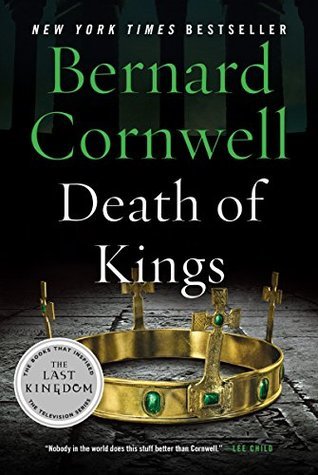 The ninth century is coming to a close and England is at a major crossroads. King Alfred the Great is dying and England being unified is still a long-term goal. The only hope for a united England lies in the hands of his son and successor Edward. However, the road to the throne will be challenging as other Saxons and Viking warriors desire the throne. Only one man can help the young king, but which side will Uhtred of Bebbanburg choose? The fight for England’s future continues in book six of the Saxon Stories, “Death of Kings” by Bernard Cornwell.
The ninth century is coming to a close and England is at a major crossroads. King Alfred the Great is dying and England being unified is still a long-term goal. The only hope for a united England lies in the hands of his son and successor Edward. However, the road to the throne will be challenging as other Saxons and Viking warriors desire the throne. Only one man can help the young king, but which side will Uhtred of Bebbanburg choose? The fight for England’s future continues in book six of the Saxon Stories, “Death of Kings” by Bernard Cornwell.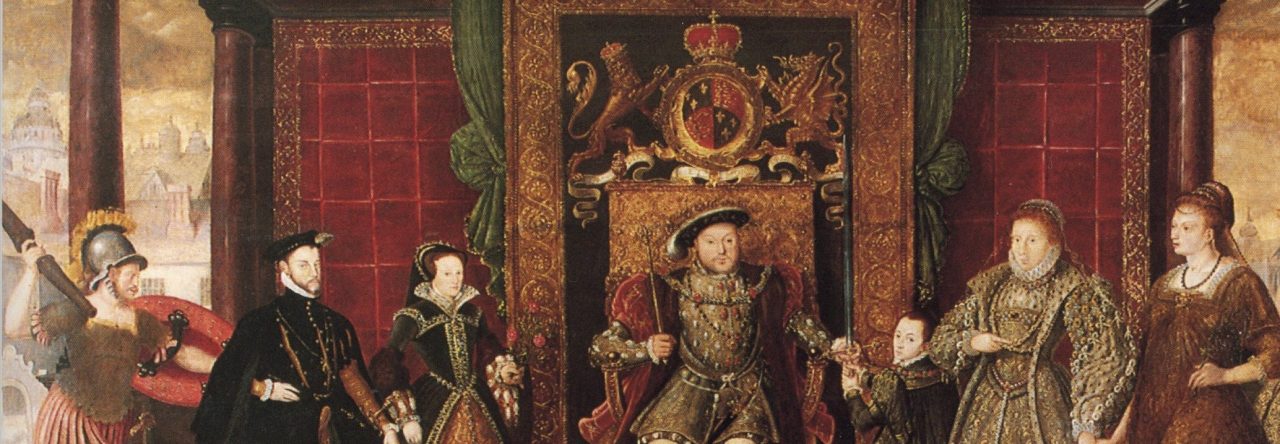
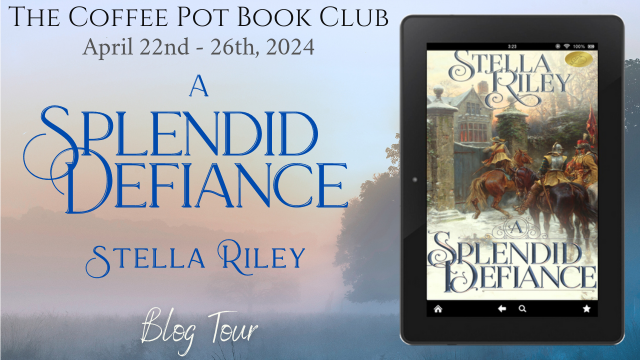 I am pleased to welcome Stella Riley to my blog today to share an excerpt from her novel, “A Splendid Defiance.” I would like to thank Stella Riley and the Coffee Pot Book Club for allowing me to be part of this blog tour.
I am pleased to welcome Stella Riley to my blog today to share an excerpt from her novel, “A Splendid Defiance.” I would like to thank Stella Riley and the Coffee Pot Book Club for allowing me to be part of this blog tour.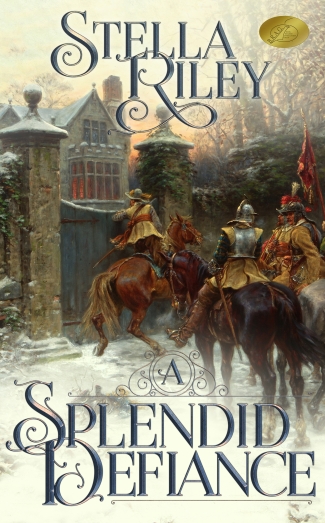 Blurb:
Blurb: Author Bio:
Author Bio: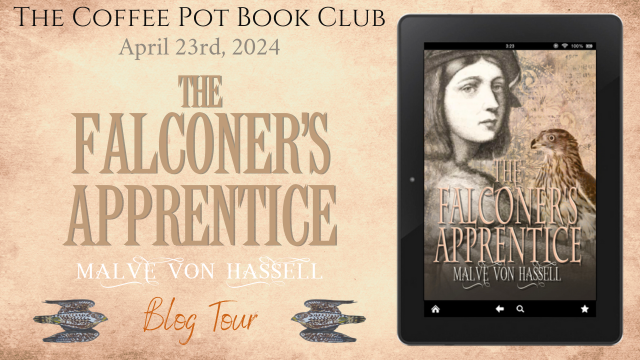 I am pleased to welcome Malve von Hassell to my blog today to share a spotlight for her novel, “The Falconer’s Apprentice.” I want to thank The Coffee Pot Book Club and Malve von Hassell for allowing me to be part of this blog tour.
I am pleased to welcome Malve von Hassell to my blog today to share a spotlight for her novel, “The Falconer’s Apprentice.” I want to thank The Coffee Pot Book Club and Malve von Hassell for allowing me to be part of this blog tour.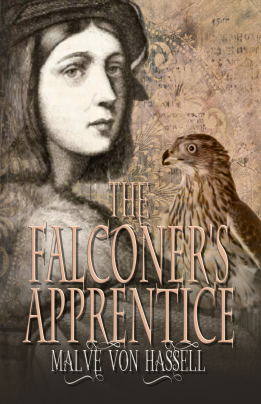 Blurb:
Blurb: Author Bio:
Author Bio: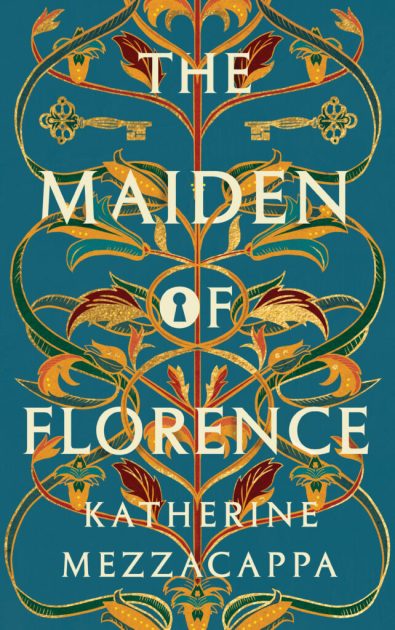
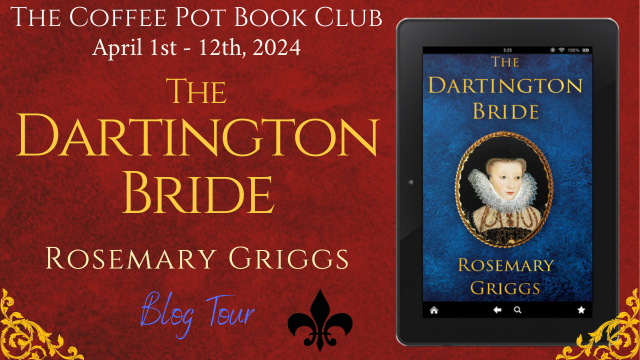 The 16th century was known for its dramatic changes in religious issues. None more so than during the late Tudor dynasty especially during the reign of Elizabeth I. However, France also saw the religious pendulum swing between Protestantism and Catholicism. Many families from all walks of life were caught in religious squabbles, like the Montgomery family. Lady Gabrielle Roberda Montgomery found herself in the middle of the drama and was forced to marry into a prominent Devon family in Elizabethan England, far from her native France. Roberda’s extraordinary story is told masterfully in Rosemary Griggs’ latest novel, “The Dartington Bride.”
The 16th century was known for its dramatic changes in religious issues. None more so than during the late Tudor dynasty especially during the reign of Elizabeth I. However, France also saw the religious pendulum swing between Protestantism and Catholicism. Many families from all walks of life were caught in religious squabbles, like the Montgomery family. Lady Gabrielle Roberda Montgomery found herself in the middle of the drama and was forced to marry into a prominent Devon family in Elizabethan England, far from her native France. Roberda’s extraordinary story is told masterfully in Rosemary Griggs’ latest novel, “The Dartington Bride.” 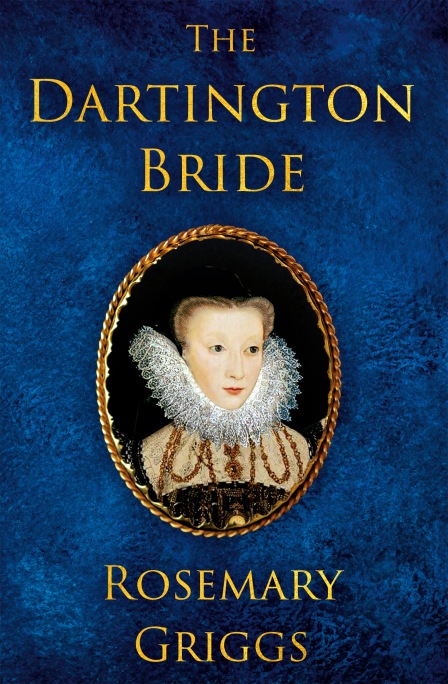 Blurb:
Blurb: Author Bio:
Author Bio: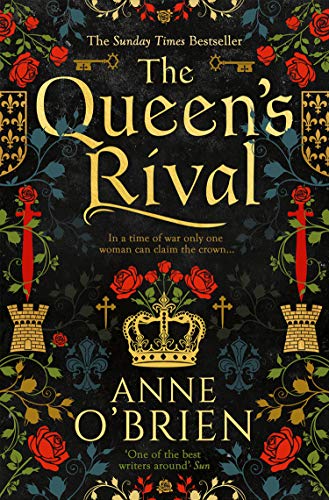 England is in the midst of chaos in a conflict known as the Wars of the Roses. The Yorkist cause is formulating a case to take the throne’s power from Henry VI and the Lancastrians and replace the king with Richard, Duke of York, whose claim to the throne is a bit stronger. Caught in the middle of the Wars of the Roses was one strong and courageous woman who would fight tooth and nail for her family and the Yorkist cause. Her name was Cecily Neville, Duchess of York, and her story is masterfully told in Anne O’Brien’s novel, “The Queen’s Rival.”
England is in the midst of chaos in a conflict known as the Wars of the Roses. The Yorkist cause is formulating a case to take the throne’s power from Henry VI and the Lancastrians and replace the king with Richard, Duke of York, whose claim to the throne is a bit stronger. Caught in the middle of the Wars of the Roses was one strong and courageous woman who would fight tooth and nail for her family and the Yorkist cause. Her name was Cecily Neville, Duchess of York, and her story is masterfully told in Anne O’Brien’s novel, “The Queen’s Rival.”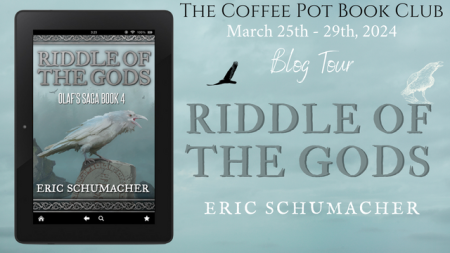 I am pleased to welcome Eric Schumacher to my blog today to share a spotlight for his novel, “Riddle of the Gods.” I would like to thank Eric Schumacher and The Coffee Pot Book Club for allowing me to be part of this blog tour.
I am pleased to welcome Eric Schumacher to my blog today to share a spotlight for his novel, “Riddle of the Gods.” I would like to thank Eric Schumacher and The Coffee Pot Book Club for allowing me to be part of this blog tour.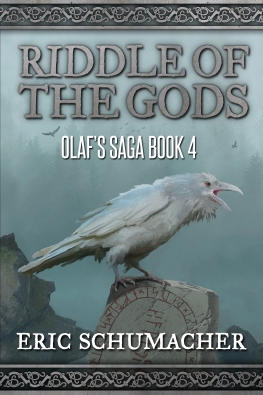 Blurb:
Blurb: Author Bio
Author Bio Today, I am pleased to welcome Debra Borchert to share an excerpt and a recipe from her series, “The Chateau de Verzat Series.” I want to thank Debra Borchert and The Coffee Pot Book Club for allowing me to be part of this tour.
Today, I am pleased to welcome Debra Borchert to share an excerpt and a recipe from her series, “The Chateau de Verzat Series.” I want to thank Debra Borchert and The Coffee Pot Book Club for allowing me to be part of this tour.  Her Own Legacy:
Her Own Legacy:
 Author Bio:
Author Bio: I am pleased to welcome Judith Arnopp back to my blog to share a snippet from her latest novel. “A Matter of Time.” I would like to thank Judith Arnopp and The Coffee Pot Book Club for allowing me to be part of this blog tour.
I am pleased to welcome Judith Arnopp back to my blog to share a snippet from her latest novel. “A Matter of Time.” I would like to thank Judith Arnopp and The Coffee Pot Book Club for allowing me to be part of this blog tour. Blurb:
Blurb: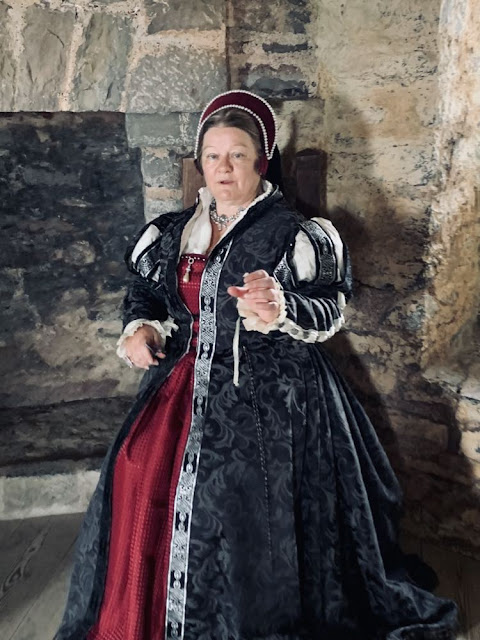 Author Bio
Author Bio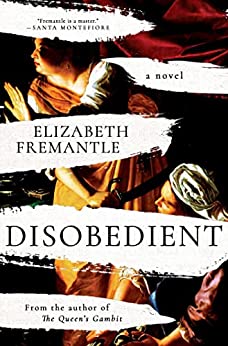 “I’ll show you what a woman can do.”
“I’ll show you what a woman can do.”